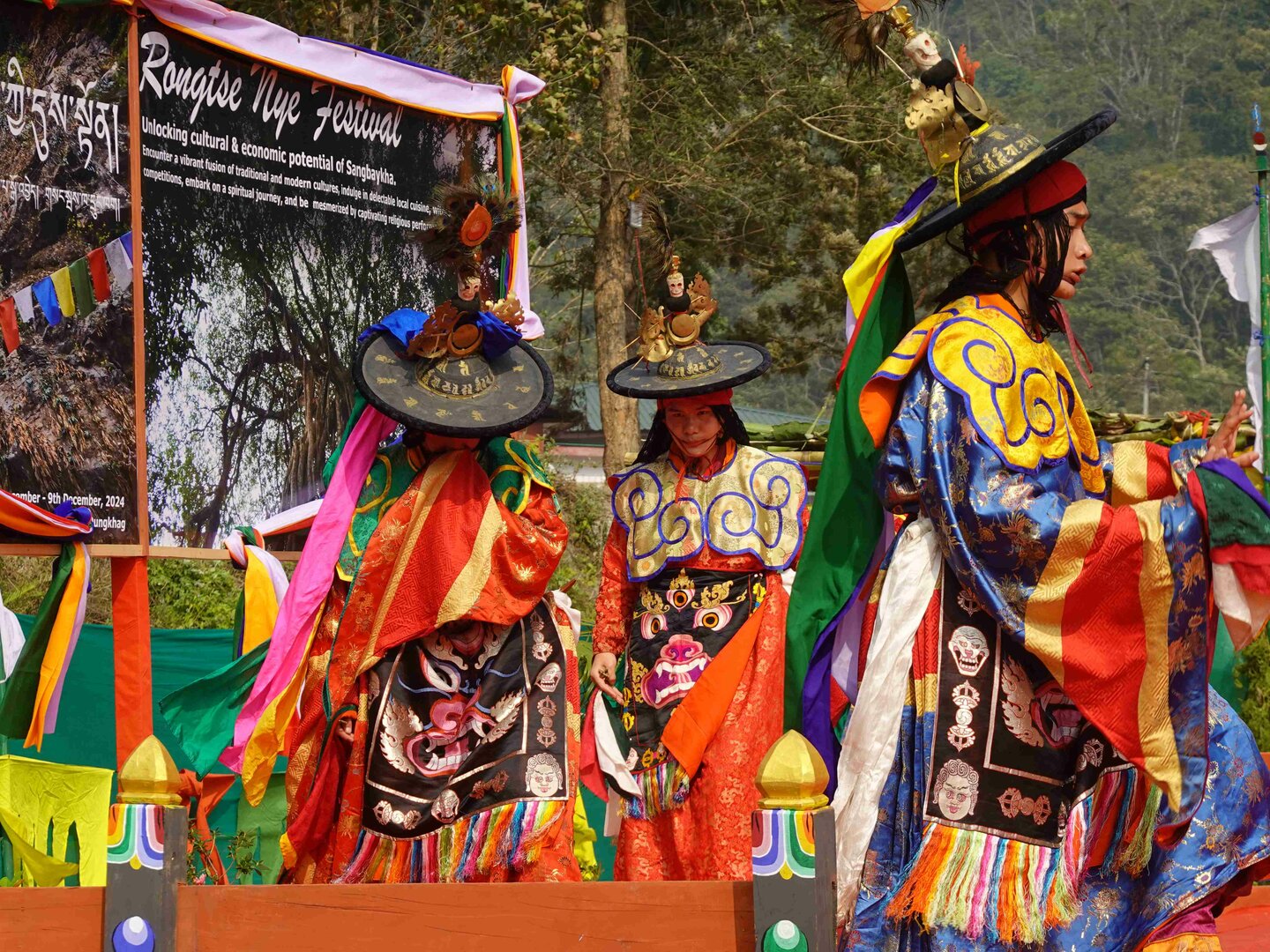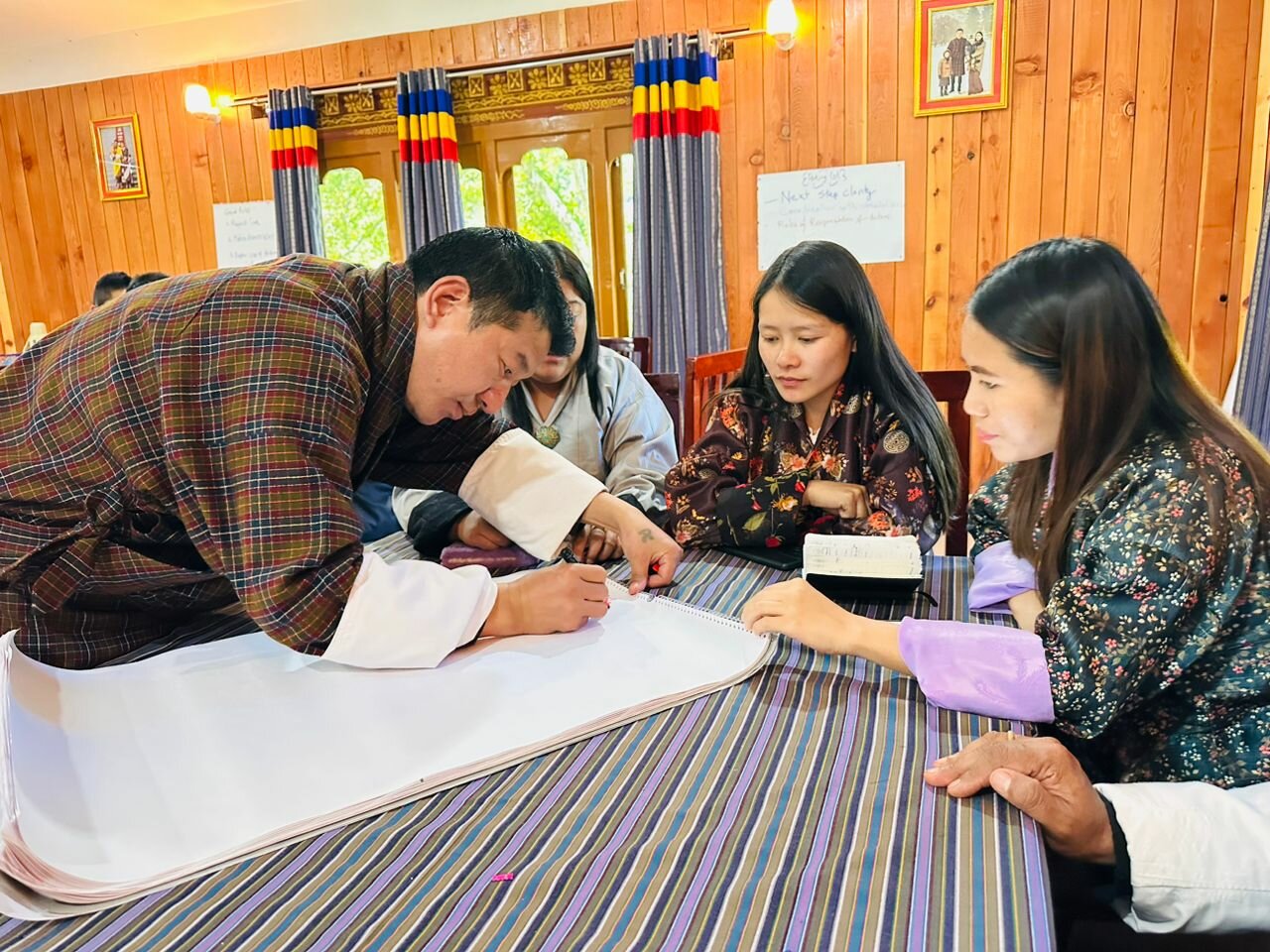In the rugged landscapes of Bhutan, an ambitious initiative focused on community engagement has seamlessly evolved into a thriving sustainable tourism model that’s redefining how communities can drive their development.
The Decentralization and Local Governance Project initially aimed at strengthening participative development, but now also fosters economic growth through community-led tourism initiatives. This transition highlights the immense potential of tourism as a unifying force for stakeholder collaboration and community empowerment.
Governance reforms open pathways for effective community-led initiatives
Sustainable tourism projects often emerge as a response to unregulated growth, igniting enhanced community engagement and fostering interconnected value chains that link tourism with agriculture, crafts and transport. But in Bhutan governance reforms preceded tourism development in emerging destinations.
In this Himalayan Kingdom, tourism-related economic opportunities were seen as a pathway to development and a unifying goal to strengthen participative development, but the priority remained on decentralized decision-making and capacity building. This exemplifies Helvetas’ vision of tourism: not as an end but as a dynamic catalyst for a community-driven tourism ecosystem.
Bhutan’s introduction of the One Tourism Policy was a major policy overhaul that set the stage for a community-driven tourism ecosystem. Under the previous policy, tourists could not travel independently. They had to book through a locally certified tour operator and always travel with a guide. The approved operators were certified by the government and dominated the market, limiting local businesses’ opportunities to be proactive and visitors’ choices for reservations and tours.
Under the One Tourism Policy tourists can now book directly with any operator and travel independently. With greater flexibility to market goods and services directly to travellers, communities found new opportunities to innovate and diversify their tourism offerings. This pivotal change empowered local stakeholders to reimagine tourism as a tool for equitable growth.

For instance, through structured consultations across five districts, local leaders and citizen groups identified community-based tourism as a strategic economic opportunity. Women and youth, who were previously underrepresented in governance processes, were trained to participate in decision-making, resulting in a governance structure more aligned with community aspirations. This proactive approach ensured that tourism evolved as a sector rooted in accountability, equity and local ownership.
Helvetas’ systemic approach to DMOs
One key element of the project’s success has been Helvetas’ innovative, systemic approach to Destination Management Organizations (DMOs). Traditional DMOs often struggle with inefficiencies due to limited capacity and a lack of sustainable funding. In contrast, the Decentralization and Local Governance Project model emphasizes leveraging existing local actors to fulfill DMO functions, minimizing costs while enhancing operational sustainability.

For example, in Pemagatshel, community-based tourism groups manage ecolodges and homestays, while local governments facilitate stakeholder coordination. This hybrid model incorporates community ownership with strategic partnerships, fostering resilience and adaptability. Practical interventions, such as training local women and youth in hospitality and governance, have not only enhanced service quality but also strengthened connections between tourism and local economic activities like agriculture and crafts, fostering systemic benefits.
Community-led tourism: Equitable growth from within
Unlike traditional community-based tourism, Bhutan’s approach places the reins entirely in the hands of local communities. This model actively involves non-touristic stakeholders—such as farmers, artisans and educators—ensuring that tourism reflects the community’s aspirations and values. By broadening participation, it creates a more equitable distribution of benefits, fostering holistic and sustainable growth.
In Chukha, for instance, initiatives such as the Jigmechu Tree House Campsites have integrated local agricultural producers into the tourism value chain, increasing incomes and diversifying economic activities. Local farmers have greatly benefited from the demand for fresh, locally sourced produce. “The campsite has provided us with a steady market for our local cheese, meat and vegetables—in particular chilies and spinach,” says local farm Karma Chenzom.
In addition to supporting local farmers, the campsite has also created new income-generating opportunities through its waste management initiatives. Kiba Dorji, who manages scrap collection in the area, says, “I am currently earning a modest income from this business, but with the growing number of guests at the campsite, I believe my earnings will increase in the future.”
The Jigmechu Treehouse Campsites, Jigmechu Eco-Camp, Pachu Community Tourism, Lotus Eco-Camp and Gongri-Bali Eco-Lodges collectively generate up to $69,000 (Nu. 6,000,000) annually during the peak season, hosting between 150 and 300 visitors per month at each site. These initiatives provide livelihoods for 46 community members, 30% of whom are women, showcasing how inclusive tourism can uplift entire communities.
The ripple effects extend beyond direct economic benefits. Increased participation of youth and women in tourism management has improved local governance, as communities collaboratively address challenges such as waste management and infrastructure maintenance. Partnerships with regional tour operators and businesses have further strengthened market linkages, ensuring the long-term viability of these initiatives.
Lessons learned
Numerous lessons for sustainable development were captured through the Decentralization and Local Governance Project, which ran from 2018-2022, including:
- Governance can serve as a foundation for tourism. Strong governance frameworks ensure tourism initiatives are community-driven, inclusive and sustainable. Bhutan’s experience highlights the importance of aligning tourism with governance reforms from the outset. Effective governance also connects tourism to broader development goals such as biodiversity conservation, natural resource management and cultural heritage preservation.
- Tourism is an inclusive sector. Tourism can act as an entry point to economic opportunities for disadvantaged groups through targeted capacity-building programs. Involving women and youth enhances community resilience and drives innovation, creating pathways to skills development and entrepreneurship.
- Systemic DMO models work. Decentralized hybrid models that leverage local actors are more sustainable and cost-effective than traditional, centralized DMOs. By creating links with other sectors like agriculture and education, these models amplify local economic cycles and ecosystem resilience. The integration of holistic planning ensures that DMOs serve as catalysts for systemic change, aligning with sustainable tourism principles.
- Strategic partnerships are essential. Collaborative networks with stakeholders, including local governments, businesses and civil society, amplify the impact and ensure market access for remote destinations. These partnerships have been pivotal in building strong tourism ecosystems.
- Policy shifts unlock potential. Transformative regulatory changes, such as the One Tourism Policy, create opportunities for local innovation and market diversification, proving critical to tourism development.
- Adaptation to local contexts is essential. Tailoring initiatives to community-specific strengths and aspirations maximizes their relevance and effectiveness, as demonstrated by the varied tourism products developed across districts.
A scalable model for a sustainable future
The Decentralization and Local Governance Project’s evolution into a sustainable tourism initiative illustrates a replicable model for other regions aiming to align governance improvements with economic development. By centering community participation, equity and systemic planning, Bhutan is not only preserving its cultural and natural heritage but also demonstrating the potential of sustainable tourism to serve as a bridge to inclusive development and ecosystem resilience. As these communities continue to thrive, the project serves as a testament to the transformative power of aligning governance and tourism for sustainable development.
About the Authors
Lekey Wangdi was the Project Advisor for the Decentralization and Local Governance Project.
Tshering Phuntsho is the Monitoring, Evaluation & Logistics Officer for Helvetas Bhutan.
Adrien Rebord is Helvetas’ Senior Advisor for Vocational Skills Development.






